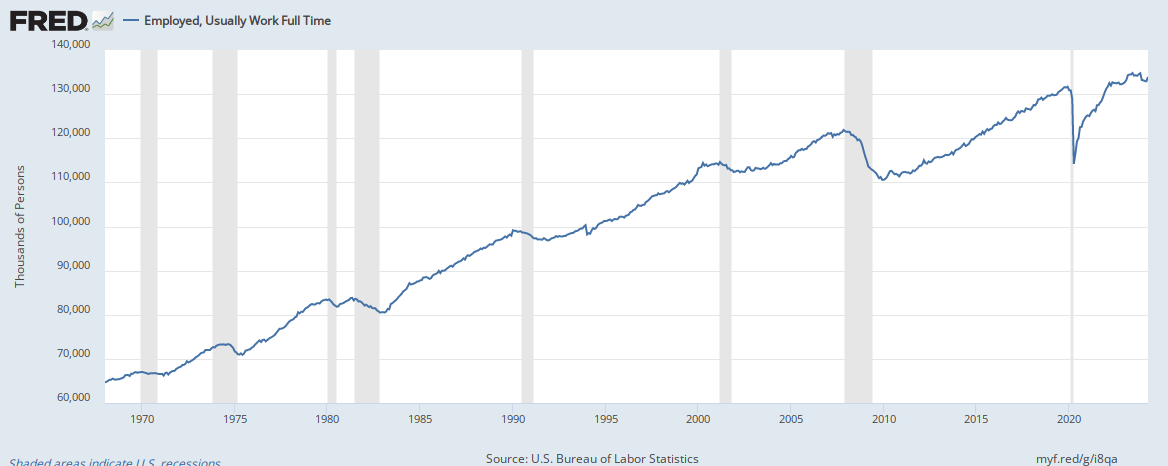The irony meter just exploded:
https://www.whitehouse.gov/omb/historical-tables/ Table 2.1
Individual income tax receipts:
2000 1,004,462
2001 994,339
2002 858,345
2003 793,699
2004 808,959
2005 927,222
Lol...I love it when people are wrong. We've been reducing taxes for decades now and yet we have always gone up except for, as I pointed out, when we've had economic issues (e.g. dot com bubble, housing bubble). That remains 100%, despite you trying to use improper numbers.
https://www.thebalance.com/current-u-s-federal-government-tax-revenue-3305762
FY 2017 (est.) - $3.460 trillion.
FY 2016 - $3.268 trillion.
FY 2015 - $3.250 trillion.
FY 2014 - $3.021 trillion.
FY 2013 - $2.775 trillion.
FY 2012 - $2.45 trillion.
FY 2011 - $2.3 trillion.
FY 2010 - $2.16 trillion.
FY 2009 - $2.1 trillion.
FY 2008 - $2.52 trillion.
FY 2007 - $2.57 trillion.
FY 2006 - $2.4 trillion.
FY 2005 - $2.15 trillion.
FY 2004 - $1.88 trillion.
FY 2003 - $1.72 trillion.
FY 2002 - $1.85 trillion.
FY 2001 - $1.99 trilion.
FY 2000 - $2.03 trillion.
FY 1999 - $1.82 trillion.
FY 1998 - $1.72 trillion.
FY 1997 - $1.58 trillion.
FY 1996 - $1.45 trillion.
FY 1995 - $1.35 trillion.
FY 1994 - $1.26 trillion.
FY 1993 - $1.15 trillion.
FY 1992 - $1.09 trillion.
FY 1991 - $1.05 trillion.
FY 1990 - $1.03 trillion.
FY 1989 - $991 billion.
FY 1988 - $909 billion.
FY 1987 - $854 billion.
FY 1986 - $769 billion.
FY 1985 - $734 billion.
FY 1984 - $666 billion.
FY 1983 - $601 billion.
FY 1982 - $618 billion.
FY 1981 - $599 billion.
FY 1980 - $517 billion.
FY 1979 - $463 billion.
FY 1978 - $399 billion.
FY 1977 - $356 billion.
FY 1976 - $298 billion.
FY 1975 - $279 billion.
FY 1974 - $263 billion.
FY 1973 - $231 billion.
FY 1972 - $207 billion.
FY 1971 - $187 billion.
FY 1970 - $193 billion.
FY 1969 - $187 billion.
FY 1968 - $153 billion.
FY 1967 - $149 billion.
FY 1966 - $131 billion.
FY 1965 - $117 billion.
FY 1964 - $113 billion.
FY 1963 - $107 billion.
FY 1962 - $100 billion.
FY 1961 - $94 billion.
FY 1960 - $93 billion.



